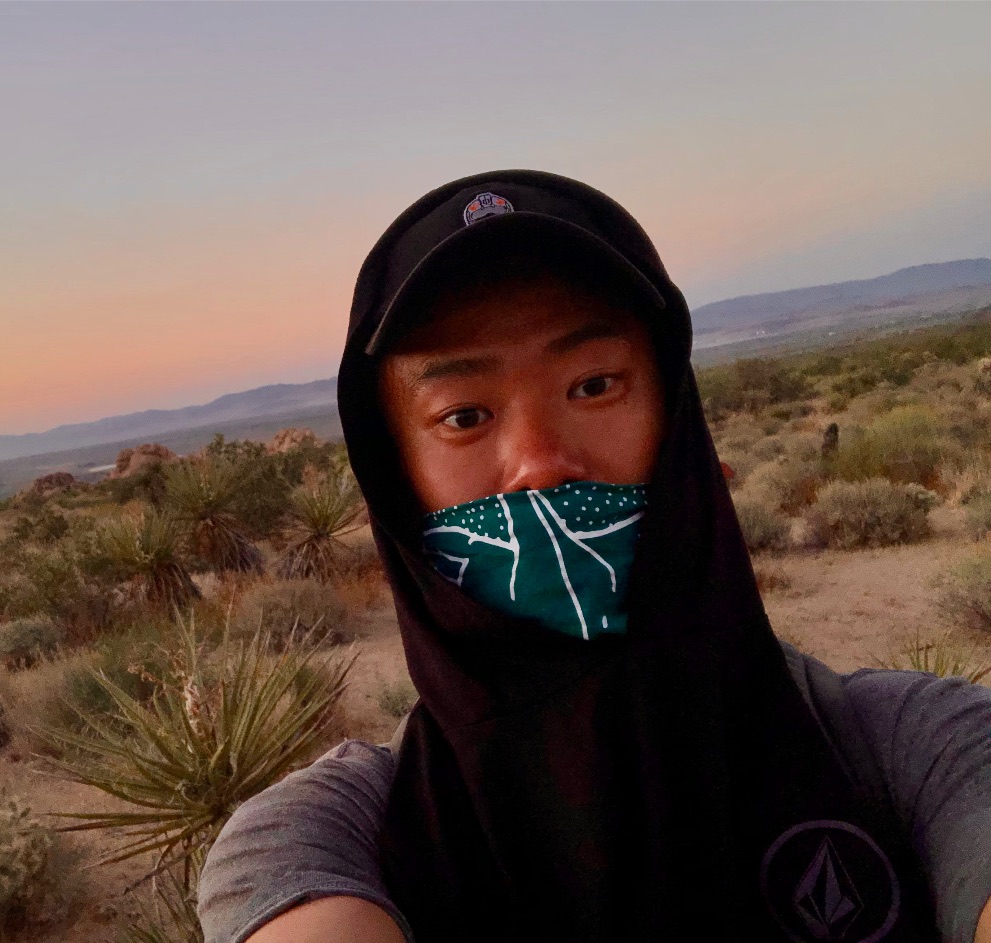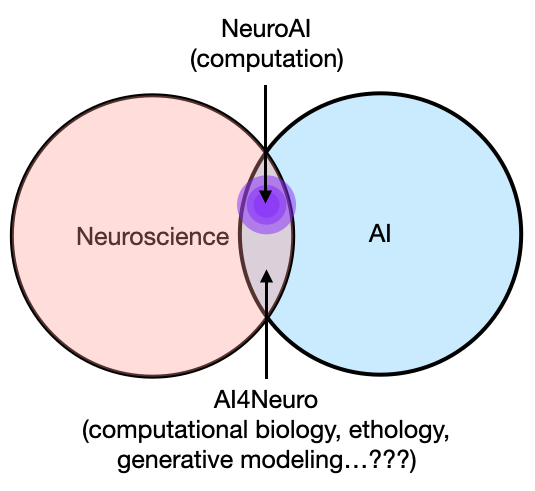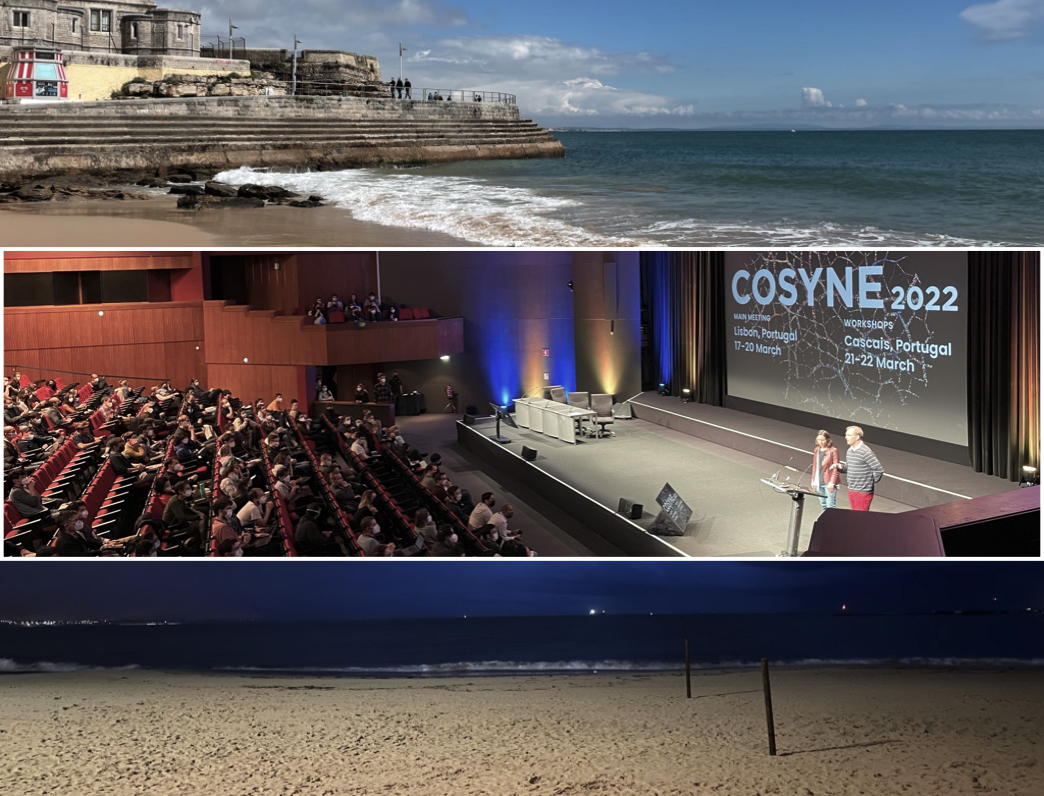I am now in the 52nd week of being in San Diego, so this marks an excellent opportunity to document my first year of graduate school. I’d also just realized, I started drafting a reflection a month after I got here, back in November of last year, in hopes of summarizing my experiences for all my fans to see then. Alas, that document has been sitting in the draft box since then, with nary a word in it. Hey, blame it on grad school.
Before I get started, I just want to say that, I’ve read a few really excellent (and some not so good) guides on how to be a (successful /happy /living) PhD student in the recent months - and this is not one of those. I am not advising anyone on how to be a graduate student because, well, I largely haven’t figured out. But more importantly, individual experiences in grad school vary hugely because not only does it depend on a range of external factors such as the school, the city, climate, lab/advisor relationship (the list goes on), but more importantly, your own personality and mindset going in. In fact, this past year of tremendous intellectual and personal freedom was more of an opportunity to learn about myself, than about how to grad school. With that said, let’s delve into Book 1: Richard Gao and the Elusive Specialty.
What Graduate School Is Not (and Is)
Before getting into what graduate school is, I figure I will start with what
graduate school is not, because I know what it’s not and the millions of
fortunate souls not in graduate school has no idea: graduate school is not
school. Weird, right? Because why the hell would someone call it graduate
school if it’s not really school, and if it’s not school, what is it? The best
analogy I can think of for a graduate student is someone working full time at
a startup company while having to attend mandatory training sessions, except,
at hours comparable to a full-time arts degree in college (or quarter-time in
engineering… :] ). Some schools/departments require rotations in 2 or 3
research labs before committing to joining one, but after someone adopts you,
your primary responsibility is working for said lab, which can include a
variety of things like reading, designing experiments, running analysis, or
god forbid, culturing cells (and it’s macroscopic equivalent, running
undergrads in psychology & cognitive experiments).
The usefulness of the courses themselves range from [VERY, BUT ONLY 5-10 LECTURES WORTH], to [NOT AT ALL], and it’s up to the graduate student to a) fill gaps in his or her knowledge via attending these courses, and more importantly, b) jump through hoops to satisfy departmental requirements. You DO learn things, but by and large, nobody gives a single shit whether you actually learn anything in these classes, which, now that I think about it, is surprisingly similar to undergraduate classes. Obviously you (and your advisor) hope that you can obtain useful skills and knowledge that will push you forward and onto unexpected paths in your research, but if classes are the only means of you learning, then something is no bueno. All that being said, some people - and I shamefully admit that I am one such person - have a pathological need to do well in courses, no matter how trivial, knowing full well that it’s worth as much as ..uh nothing AND that getting straight A’s doesn’t actually mean that they’ve learned anything. All I can say here is: I’m a victim brotha, even my conditioning has been conditioned.
Anyway, think of it like this: when you start your brand new job, you have to go through training modules, some more unpleasant than others. As much as we all hate WHMIS, some of the things you learn IS useful and could potentially save your ass (literally). But just because you did WHIMS, doesn’t mean you will be any good at your actual job. And the mandatory units you have to satisfy for some arbitrarily defined breadth requirement, well, those are like having to take workplace conflict resolution training, except anywhere between 3 to 5 times in the year. But taking those training modules isn’t really the same thing as being “in school”. To extend this analogy, you are the unfortunate employee, your lab is the company you actually work for and pay you, and your school is the government which makes money by providing you these training modules that are kinda okay except for the fact that for every dollar your company pays you, they have to pay the government a dollar too so you can be certified for something that the government actually has no idea whether you can or cannot do. It’s even more confusing because your school pays your supervisor.
When Is My Summer Vacation
Many people in the past year have asked me this, so it deserves its own
section. Offending parties include well-meaning people like your family not in
grad school, significant other not in grad school, friends not in grad school,
random strangers not in grad school…pretty much anybody not in grad school
and think that you are “in school”. There are really two answers to this, and
depending on whether you feel like clarifying, which has the unintended effect
of triggering a follow-up question that I will shortly discuss, you can go
with either one.
Short answer: July.
Long answer: Never.
Short answer: My summer vacation starts when I don’t have classes anymore,
i.e. when I don’t have an institutional obligation to be at school anymore,
which, in my case, is July to October.
Long answer: My summer vacation? Well, I work at a startup full-time but also
take classes full-time. And when I don’t have to go to class, I still work at
the start-up full-time…But I get vacation time?
Actually, there are some more variations here. A lot of people stay back in the summer to do research, if there is funding, and especially if there are projects to be completed. But some people stay back to be a teaching assistant for the summer to get paid and take a break from working in the lab. And others actually just take the summer off to travel or explore other interests, or maybe even work as a visiting scholar somewhere else. It largely depends on the needs of your lab (aka employer), your personal preference, and how the money flows, but working as a researcher seems to be the most common, at least in my experience. The thing is, if you’re into research, summer is the only undisturbed time you have to actually do any work, at least in the first two years. In other words, you love your job, you really want to spend time on it, and you get 3 or 4 months a year where you finally don’t have to go to fucking WHMIS 12 hours a week anymore, what the hell else would you do other than to do your job? Ironically enough, as much as I was gung-ho about doing actual work this summer, I ended up largely absent from the lab, though the good thing about working on a computer is that you can do it anywhere…theoretically.
How Do I Pay For School
Graduate school has possibly the most absurd payment structure, but the short
answer is: I don’t pay to go to school, and I get paid to be a researcher. For
most PhD students, enrolling in a PhD program comes with “funding”, and
usually quoted at a handsome enough figure. Looking at this figure, you might
actually feel like your bachelor-level education is appropriately appreciated
here, at least more so than your local Starbucks does. The problem is that the
institution (school) usually takes more than half of that handsome figure for
tuition and fees, before it ever makes it into your bank account, leaving you
to wonder whether Starbucks is such a bad choice afterall. In reality,
graduate students receive a net salary of 20-30k a year, and that money can
come from a variety of ways, such as you working as a researcher (your primary
role), external funding, or working as a teaching assistant. Some of these are
obviously better than others, as far as extra responsibility goes: being paid
by your boss feels like you’re a functioning member of society contributing to
scientific endeavor, being paid through government funding feels like you’re
the prince of paupers and that your work might be somewhat interesting even
though the market dictates that not only do you not have a minimum wage, you
actually have a maximum wage, and finally, being paid through working as a TA
feels like you’re a monk journeying through the countryside preaching your
wisdom to a group of people whose collective fucks barely sum up to the 5th
decimal place, but you have to because otherwise you’ll starve. I joke. It’s
not that bad. There are always bright undergrads who you fear might make you
look like a bumbling fool in front of the whole class, but the sentiment
remains - it’s not a well paid job.
Personally, I enjoyed teaching a lot, especially if I get to help teach a subject that I happen to want to learn about. I TAed an entry-level statistics class this past year and boy did it help me professionally. It’s only a shame because every class, I stare into their soulless eyes and think, oh you will wish you learned this stuff the first time around. But that’s only because the first time I took stats, it was like a competition between me and this one senior professor, who was presumably evaluating my professor’s teaching capabilities, to see who can fall asleep the fastest. Also, graduate student pay is by far the most complained-about topic for all graduate students, because, for real, it’s not that great. But to be honest, it beats working at Starbucks, and you might even save some if you live real frugally by doing creative things. Like drinking Soylent.




